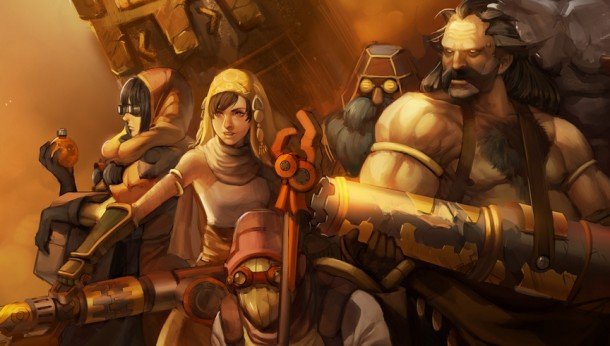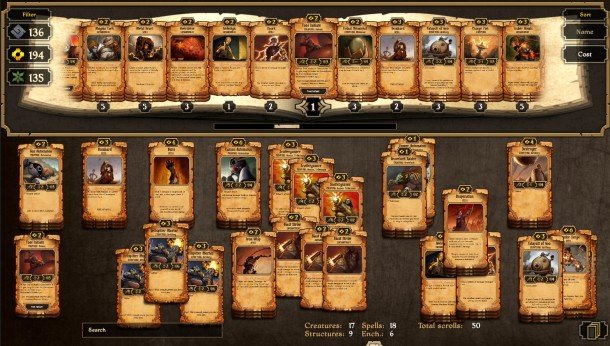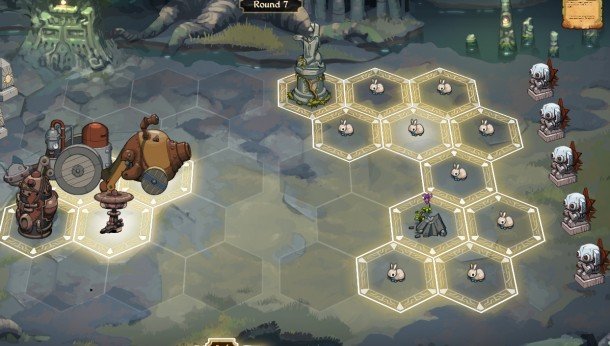Mojang on Scrolls' future and the trouble with microtransactions

Microtransactions have a bad rep. Drop the M-bomb into a conversation and you'll instantly see, from some, a disdainful curl of the lip. You might get a snort of derision. If you're unlucky they might be a little bit sick on you. Maybe it's that poorly implemented micropayment systems doesn't just feel like a bad deal, they feel exploitative, and it can be hard to tell how gentle the microtransaction system is before you've sunk a lot of time into the game. That's an unpleasant uncertainty to endure when you're settling down to have fun with something new.
So what of Scrolls , then? The card collecting/battling game is the latest from Mojang, the studio founded by Notch, who built That Game With All The Cubes . You can pay to buy into the beta now on the Scrolls site , and once inside you'll be able to lay down cash for cards. Is it reasonable to have microtransactions in an unfinished build of the game? Why are microtransactions so unpopular, and what are Mojang's plans for development in the next year? I put these questions to Mojang co-founderJakob Porsér, who argues that Mojang "definitely want to be good guys," when it comes to micropayments.
"We are very careful about how we use these micro-transactions. We said from the start that we do not want Scrolls to be a pay-to-win kind of game. Micro transactions will be used mostly for cosmetic features. A very small set of scrolls will be available each week for real money purchase, but they are also available for earned in game currency. All content is accessible through playing the game, so spending money in the game really is optional," Jakob insists. He says that players will regularly be buying cards with in-game currency rather than real money. Mojang outlined their pricing plans in a blog post on the Scrolls site yesterday.

When I asked him if the presence of microtransactions in the beta would make it a tougher sell, Jakob admitted that "it probably will," adding that "people are often suspicious about micro-transactions, and rightfully so."
He elaborated later: "I think many developers have become way too cynical when it comes to micro-transactions. They start developing their games around a business model instead of a business model around their game. This shines through and when players see it, they will feel cheated if they have invested in such a game."
"Far from all game developers use micro-transactions like this, but the bad taste lingers and gamers will naturally be hesitant if they see that a game has in game purchases. We definitely want to be good guys here, and I think people will see our intentions once the game comes out."
I posit that microtransactions in card games are a long established fact of the genre - people have put down spare change for physical foil packs for decades, after all - does that help a little with the perception problem.
Keep up to date with the most important stories and the best deals, as picked by the PC Gamer team.

I think you are right, but at the same time comparing a digital card game to a physical one isn't really a fair comparison. As a player I can't help but think "Why do they want me to pay money in the same way for a digital product as for a physical one". The running costs for a digital card game is way smaller than for a physical one, and to not let this reflect on the prices is to cheat your customers."
Like Minecraft, Mojang are planning long-terms support for Scrolls, in addition to the trial challenges, trading, the deck builder and multiplayer battles, the devs are working on "updateable scrolls" that will let players "combine scrolls in your collection to either upgrade them, or to craft new ones." There's also a single player campaign planned, which will involve "moving across maps and battling different monsters in some way." There are lots more scrolls to be added also, as you'd expect. "This will be done in larger sets, but also on a more regular basis where we add a few every week or so to spice things up."
Find out more on the Scrolls site .
Part of the UK team, Tom was with PC Gamer at the very beginning of the website's launch—first as a news writer, and then as online editor until his departure in 2020. His specialties are strategy games, action RPGs, hack ‘n slash games, digital card games… basically anything that he can fit on a hard drive. His final boss form is Deckard Cain.


